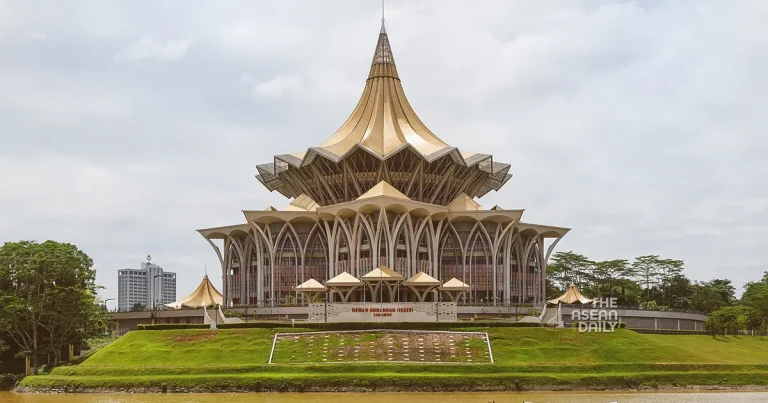22-11-2023 (KUALA LUMPUR) Malaysia’s eastern state of Sarawak achieved a significant milestone on November 20 by passing two historic laws— the Sarawak Ombudsman Bill 2023 and the Environment (Reduction of Greenhouse Gases Emission) Bill. Sarawak has become the first Malaysian state to establish an ombudsman and the first to address climate change through legislation, surpassing the federal government’s attempts.
Analysts attribute Sarawak’s success in enacting these laws to its unique position, unencumbered by religious or racial concerns that often hinder progress in other states. Dr. Arnold Puyok, a senior lecturer at the University of Malaysia, Sarawak, noted that Sarawak’s secular identity allows it to focus on priorities without being entangled in racial and religious issues.
Sarawak’s Landmark Bills
Deputy Premier Awang Tengah Ali Hasan announced that the Sarawak Ombudsman Bill 2023 aims to enhance transparency and accountability in government agencies. This legislation provides the public with a platform to report instances of mal-administration, fostering integrity in state public service agencies. The Sarawak Ombudsman will be led by a Chief Ombudsman and a Deputy Chief Ombudsman, along with three to five other ombudsmen.
In contrast, the Ombudsman Malaysia 2023 Bill at the federal level, which has been in development since 2019, is yet to be tabled in parliament. The delay raises questions about Malaysia’s commitment to reducing greenhouse gas emissions, especially considering the targets set in the Paris Agreement.
Climate Change Legislation in Sarawak
The Environment (Reduction of Greenhouse Gases Emission) Bill in Sarawak reflects the state’s commitment to environmental responsibility. The bill includes measures such as a carbon levy on businesses failing to meet emission reduction thresholds. According to Ms. Sharifah, the legislation will establish Sarawak’s comprehensive regulatory framework on clean and renewable energy, positioning the state as a global leader in clean energy.
While Sarawak takes strides in addressing climate change, Malaysia’s national climate change Bill is anticipated to take two to three more years for development. The federal government emphasizes a whole-of-nation approach, engaging with stakeholders to formulate an effective strategy.
Sarawak’s Bold Initiatives
Sarawak has previously marked various firsts in Malaysia, including testing the world’s first hydrogen-powered smart tram and establishing Malaysia’s first training ground for doctors and nurses specializing in palliative care. The state’s ability to pioneer progressive measures is credited to Chief Minister Abang Johari Openg’s daring leadership.
Analysts suggest that other Malaysian states, especially those led by the opposition coalition Perikatan Nasional (PN), are unlikely to replicate Sarawak’s initiatives. Dr. Oh Ei Sun, a senior fellow, notes that states led by PN prioritize religious issues over contentious legislation. Sarawak’s Chief Minister’s boldness is acknowledged as a driving force behind these landmark Bills, providing a new narrative amid declining traditional resources.
As Sarawak continues on its path of development, it aims for greater autonomy, pushing pro-business and tech-focused policies without waiting for federal approval. While Sabah attempts to emulate Sarawak’s success, its susceptibility to federal interference, driven by the relevance of national parties, remains a hurdle to progress.




